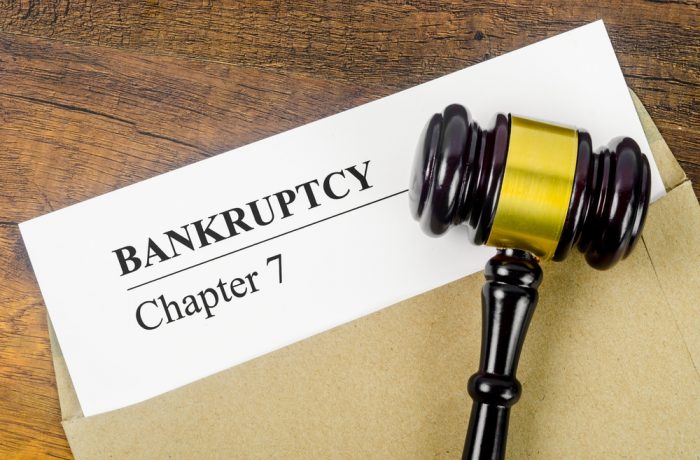Navigating financial hardships can be overwhelming, but filing for bankruptcy in New York may provide the fresh start you need. Bankruptcy is a legal process designed to help individuals and businesses eliminate or repay debt under the protection of the federal bankruptcy court. Understanding the types of bankruptcy available and the steps involved is crucial to making an informed decision.
Types of Bankruptcy in New York
The most common types of bankruptcy for individuals are Chapter 7 and Chapter 13:
- Chapter 7 Bankruptcy: Known as “liquidation bankruptcy,” Chapter 7 allows you to discharge most unsecured debts, such as credit card balances and medical bills. Certain assets may be sold to repay creditors, but New York’s exemptions (like the homestead exemption and personal property exemptions) often allow filers to retain essential property.
- Chapter 13 Bankruptcy: Often called “reorganization bankruptcy,” Chapter 13 is ideal for individuals with regular income who want to keep their assets while creating a repayment plan. The plan typically lasts three to five years and allows you to catch up on secured debts like mortgages.
October Total Bankruptcy Filings Increased 16 Percent over 2023
Total bankruptcy filings were 47,104 in October 2024, a 16 percent increase from the October 2023 total of 40,674, according to data provided by Epiq AACER, the leading provider of U.S. bankruptcy filing data.
Individual bankruptcy filings totaled 44,522 in October 2024, also registering a 16 percent increase from the October 2023 38,278 filing total. There were 27,358 individual chapter 7 filings in October 2024, a 22 percent increase over the 22,351 filings recorded in October 2023, and there were 17,091 individual chapter 13 filings in October 2024, an 8 percent increase over the 15,874 filings in October the previous year.
“We continue to observe a rise in overall filings, with notable increases in individual filings, reflecting the financial pressures faced by households,” said Michael Hunter, vice president of Epiq AACER. “Factors such as higher consumer loan delinquency rates, increased interest rates, record-high national average mortgage payments, sharp increases in insurance premiums, and overall increased expenses are significantly impacting household budgets, driving the upward trend in bankruptcy filings.”
Overall commercial filings increased 8 percent to 2,582 in October 2024, up from the 2,396 commercial filings registered in October 2023. There were 563 commercial chapter 11 filings registered in October 2024, down 13 percent from the 647 filings registered in October 2023. Small business filings, captured as subchapter V elections within chapter 11, were 202 in October 2024, representing an increase of 18 percent from 171 in October 2023.
“Elevated prices for goods and services, along with higher borrowing costs, compound the economic challenges faced by struggling families and businesses,” said ABI Executive Director Amy Quackenboss. “Access to bankruptcy is key to consumers and companies looking to alleviate their intensifying debt loads and have a chance for a financial fresh start.”
October’s total bankruptcy filings represented an 11 percent increase when compared to the 42,547 total filings recorded in September. Total individual filings for October also represented an 11 percent increase from the September 2024 filing total of 40,098. Individual chapter 7s increased 14 percent and chapter 13s increased 7 percent over September’s filings. Commercial filings increased 5 percent from September’s commercial filing total of 2,449. Subchapter V elections within chapter 11 increased 22 percent from the 165 filed in September 2024. Conversely, the commercial chapter 11 filing total decreased 24 percent from the September 2024 commercial chapter 11 filing total of 739.
Why File for Bankruptcy in New York?
- Debt Relief: Eliminate burdensome debts and regain financial stability.
- Protection from Creditors: Once you file, the automatic stay halts collections, wage garnishments, and foreclosure proceedings.
- Opportunity to Rebuild Credit: While bankruptcy affects your credit score, it also provides a clean slate to rebuild over time.
Filing Requirements in New York
To file, you must complete credit counseling, submit financial documentation, and pass the means test to qualify for Chapter 7. For Chapter 13, you’ll need a steady income to support your repayment plan.
Work with a Bankruptcy Attorney
Navigating bankruptcy laws can be complex. Consulting a knowledgeable New York bankruptcy attorney ensures you understand your options and rights, maximizing the chances of a successful outcome.
By taking proactive steps toward financial recovery, bankruptcy can be a pathway to a brighter financial future. Bankruptcy is not the end; it’s a new beginning. Allow yourself to have a fresh start. Contact the Bankruptcy Law Firm of Figeroux & Associates today. Call 855-768-8845 or visit www.askthelawyer.us to book a consultation. The lawyer you hire does make a difference!





